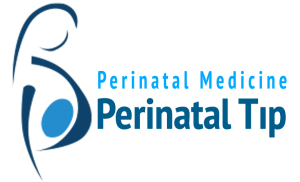
Nutrition in Pregnancy
 Nutrition in Pregnancy
Nutrition in Pregnancy
A balanced diet is essential for a healthy pregnancy and birth of a healthy baby. 350 Kcal/day is added to the daily calorie requirement during pregnancy. Each pregnant day; 80g protein, 1.5g Calcium 30-60g Iron. It should take vitamins A, B1, B2 and C.
How should a pregnant woman be fed?
A balanced diet is essential for a healthy pregnancy and a healthy baby birth.
350 Kcal/day is added to the daily calorie requirement during pregnancy. Every pregnant day;
80g protein, 1.5g Calcium 30-60g Iron. It should take vitamins A, B1, B2 and C.
For example: 2 glasses of milk or 1 bowl of yogurt or 2 matchbox-sized feta cheese. 1 serving of meat or fish or liver or legumes such as dried beans, lentils or 1 egg. Fruits; A diet containing 2-3 apples and oranges meets the necessary additional calories, protein and iron needs.
The important thing in pregnancy is not to eat too much, but to take a balanced diet. By taking additional meals between the three meals, it is ensured that the energy needs are met regularly. The ideal weight to be gained during the whole pregnancy is 10-12 kg.
Foods containing additives such as salami, sausage, sausage should be consumed as infrequently as possible. Vitamin D is not found in foods. However, it is provided by the direct reflection of the sun’s rays on the skin. Therefore, sunbathing should be taken care of. Iodized salt must be used. To prevent anemia, tea should not be drunk with meals, and the number of coffee should be limited to two cups at most. Cola and ready-made fruit juices should not be drunk. Medication should not be used without consulting a doctor. There is no need for additional vitamins and calcium in pregnant women who are fed adequately and regularly. If the risk of iron deficiency anemia is detected (Hb <11g/dl and MCV<80), iron medications can be taken.
The importance of healthy nutrition during pregnancy is due to the demonstrated positive linear relationship between maternal weight gain and newborn weight, and the effect of pre-pregnancy body mass index (BMI) on newborn weight, independent of weight gained during pregnancy. The probability of giving birth to a baby with a low birth weight (<2500 g) in mothers with low birth weight and low weight gain increases, and the probability of giving birth to a macrosomic baby in women with pre-pregnancy weight increases. In other words, total caloric intake during pregnancy is the most important nutritional factor known on birth weight. During pregnancy, an extra 300 kcal/day (80,000 kcal) energy intake is required over the pre-pregnancy period, which corresponds to a maternal weight gain of 10-12 kg at term. However, in an article written by King et al, it was revealed that the energy requirement during pregnancy can vary from 0 to 120,000 kcal. Although generally weak or malnourished pregnant women need more energy intake, it does not seem easy to estimate their real energy needs. Therefore, the most viable avenue in practice should be to use pregnancy weight gain as a barometer of energy intake.
While sufficient weight gain results in good energy intake; If it is too little or too much, it should bring up the need to evaluate individual nutrition and make appropriate adjustments with it. In a review by Abrams et al in 2000, it was seen that women who gained weight within the limits recommended by the IOM had the healthiest pregnancy outcomes in terms of maternal and fetal outcomes (low birth weight, macrosomia, spontaneous preterm birth rates, cesarean delivery, maternal postpartum obesity). However, it has been noted that only 30-40% of women are able to gain weight within the recommended range. Again, in the study by Abrams, it was stated that weight gain in the 2nd trimester is more closely related to fetal growth than in the 1st and 3rd trimesters, and low weight gain in the 3rd trimester may be related to spontaneous preterm birth. Energy requirement 10-30. Although it is the most between weeks; The maternal fat storage stored in this period is used to ensure fetal growth and lactation in the third trimester. Low weight gain during pregnancy is considered to be less than 0.5 kg per month for obese women and less than 1 kg per month for non-obese women. Increases exceeding 3 kg per month are considered excessive.
It has been demonstrated that high sugar intake causes low birth weight infant births and increased preterm birth rates in low-income adolescents. The daily protein requirement during pregnancy is 60 grams, and it increased by 15 grams compared to pre-pregnancy. Protein-containing foods are also excellent sources of iron, vitamin B6 and zinc. However, animal proteins (red meat, fatty dairy products) cause excessive fat accumulation when consumed in excess. Instead of these, products such as chicken and fish, reduced-fat dairy products should be preferred. In addition, although some opinions have been reported that high protein intake prevents the formation of preeclampsia, there is no evidence that high protein intake is beneficial during pregnancy, and it has been reported that excessive consumption may be harmful. It has been shown that high protein consumption is associated with preterm birth and low birth weight infants. In recent years, the use of essential fatty acids linoleic and α-linoleic acid (omega-3 fatty acids) during pregnancy has been a subject of interest. Omega-3 fatty acids contribute to the neural and visual development of the fetus.
The most important sources of omega-3 fatty acids are soybeans and oily fish. However, the consumption of large quantities of seafood can lead to excessive intake of toxic substances such as methylmercury and highly chlorinated biphenyls, which are likely to cause neurological abnormalities and neurodevelopmental delay. It has been claimed that trans-fatty acids found in margarines and ready-made foods such as cakes and biscuits also disrupt normal fatty acid metabolism, increase heart diseases in adults, and decrease fetal birth weight and head circumference measurement. As a result, further research is needed to understand the amount and type of fatty acids that should be taken during pregnancy. In addition, it is not known whether fish oil supplementation is safe, and the effects of consumption of trans-fatty acids have not been fully elucidated. Meanwhile, it should be emphasized that pregnant women should meet their fat needs from non-hydrogenated vegetable oils, consume moderate amounts of fish products, and turn to unprocessed natural foods.